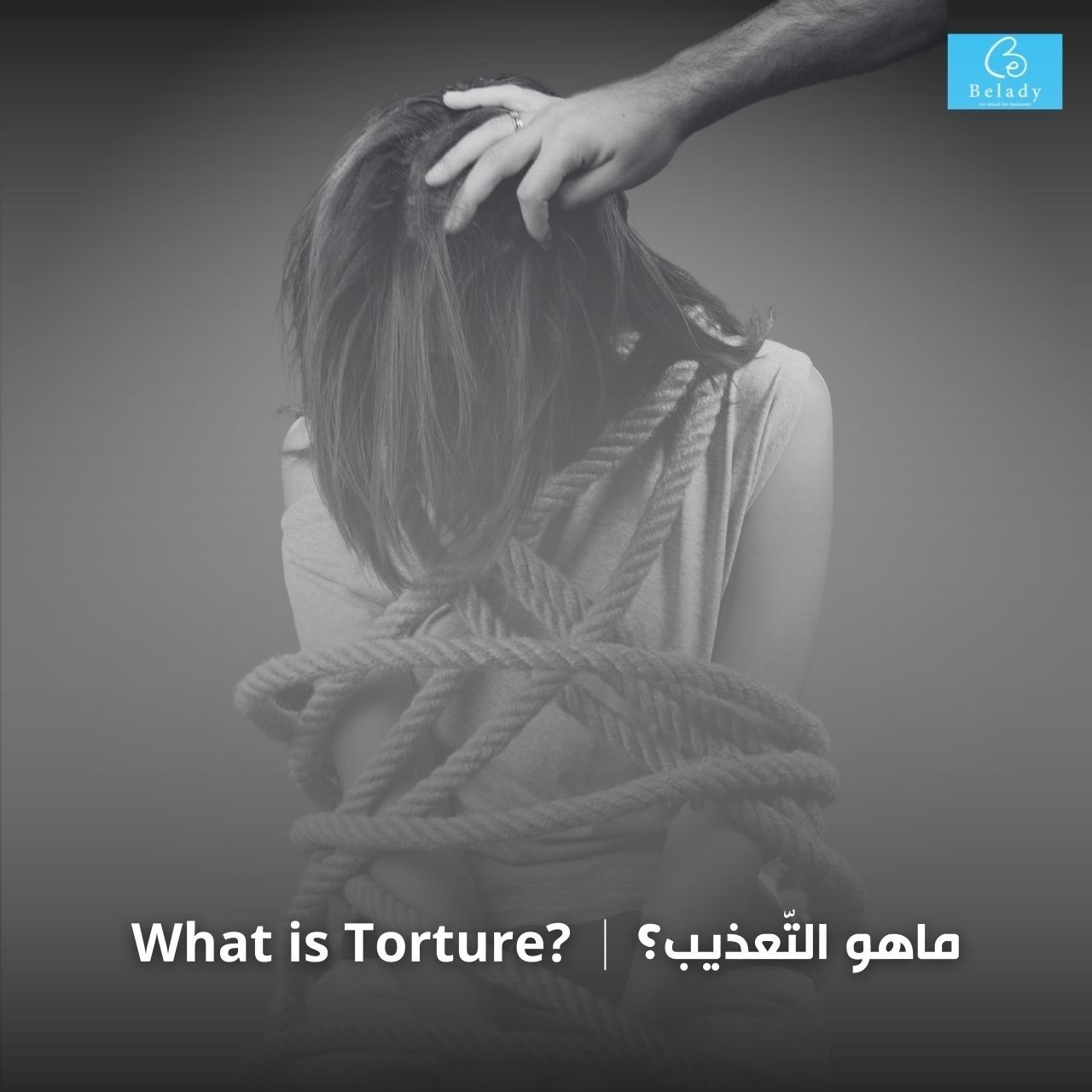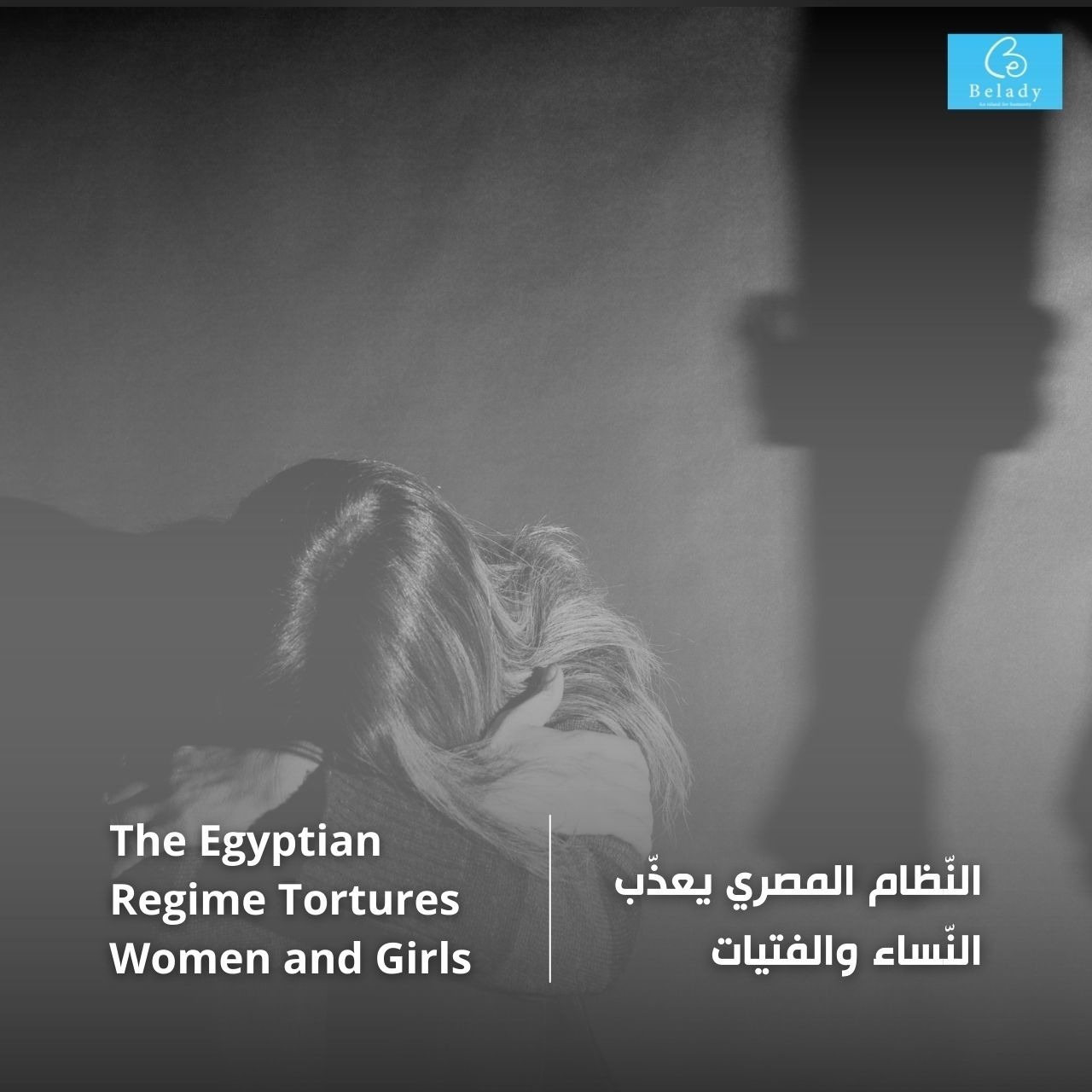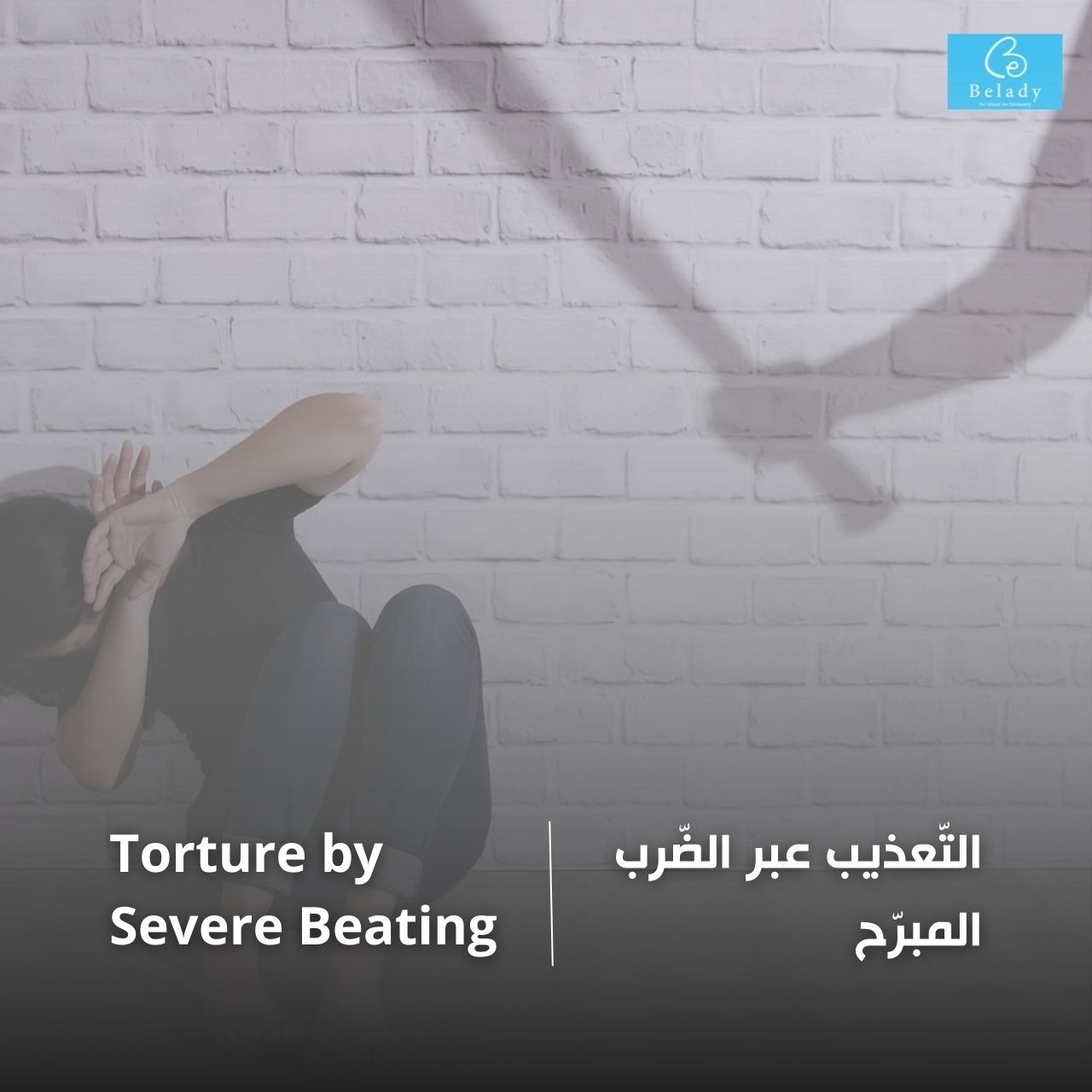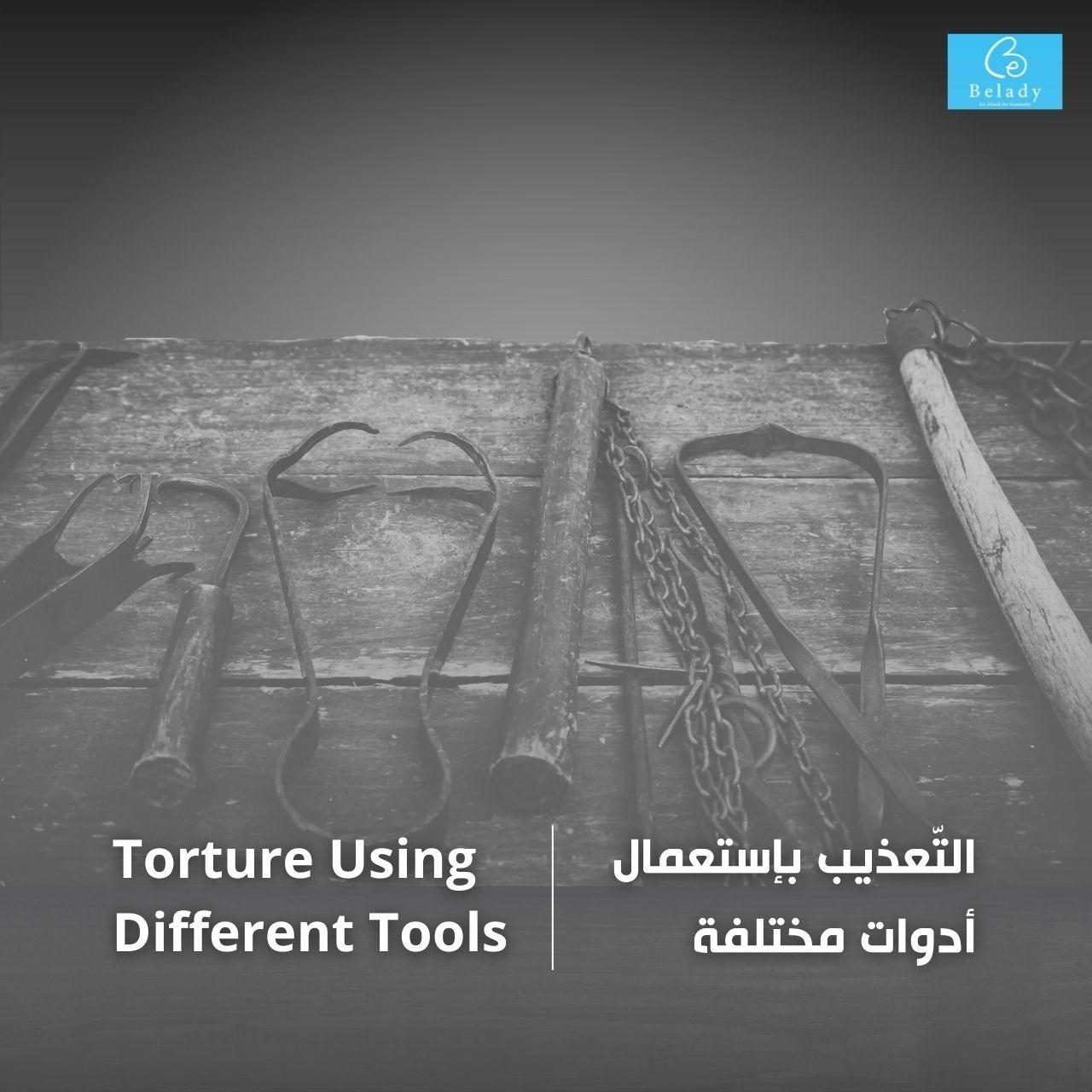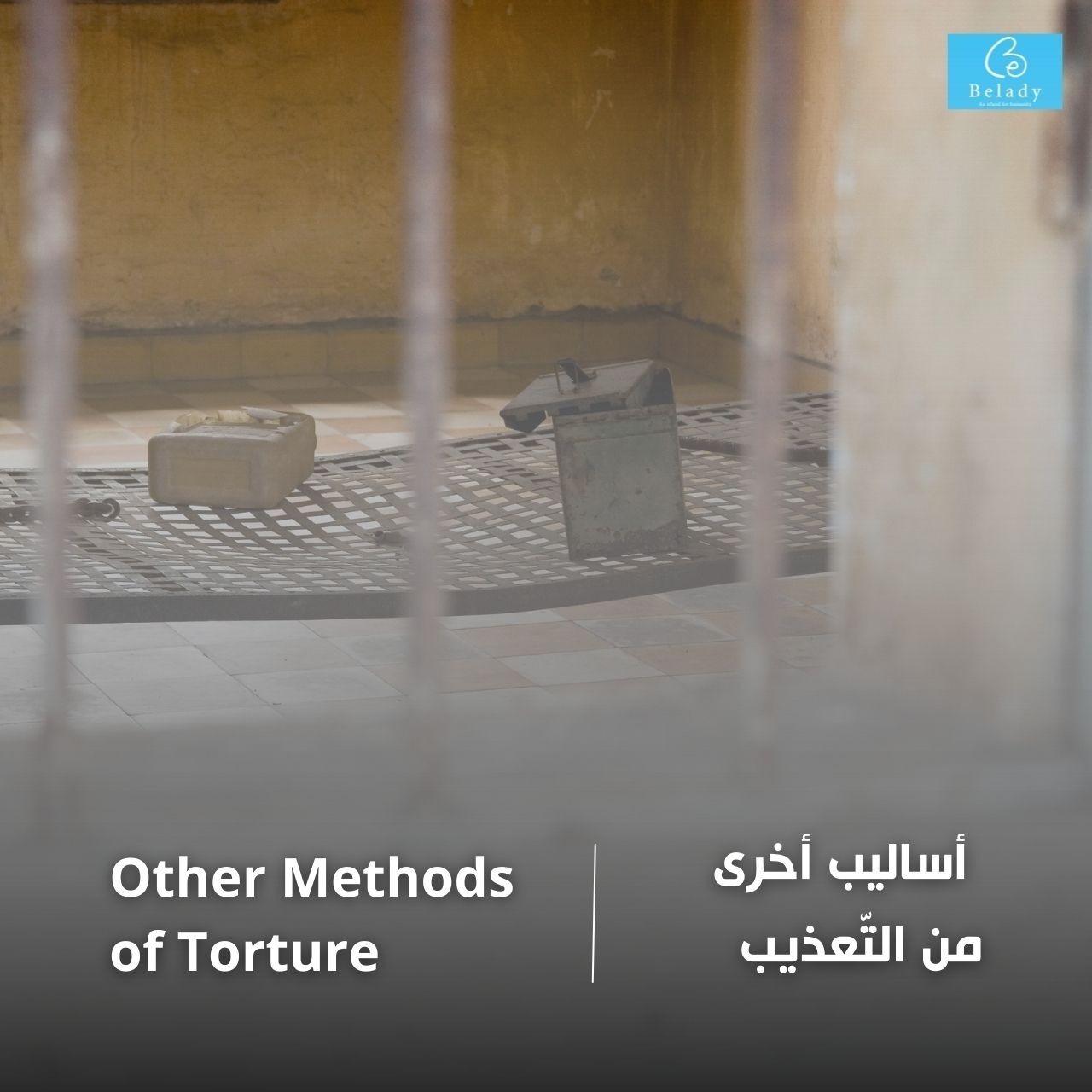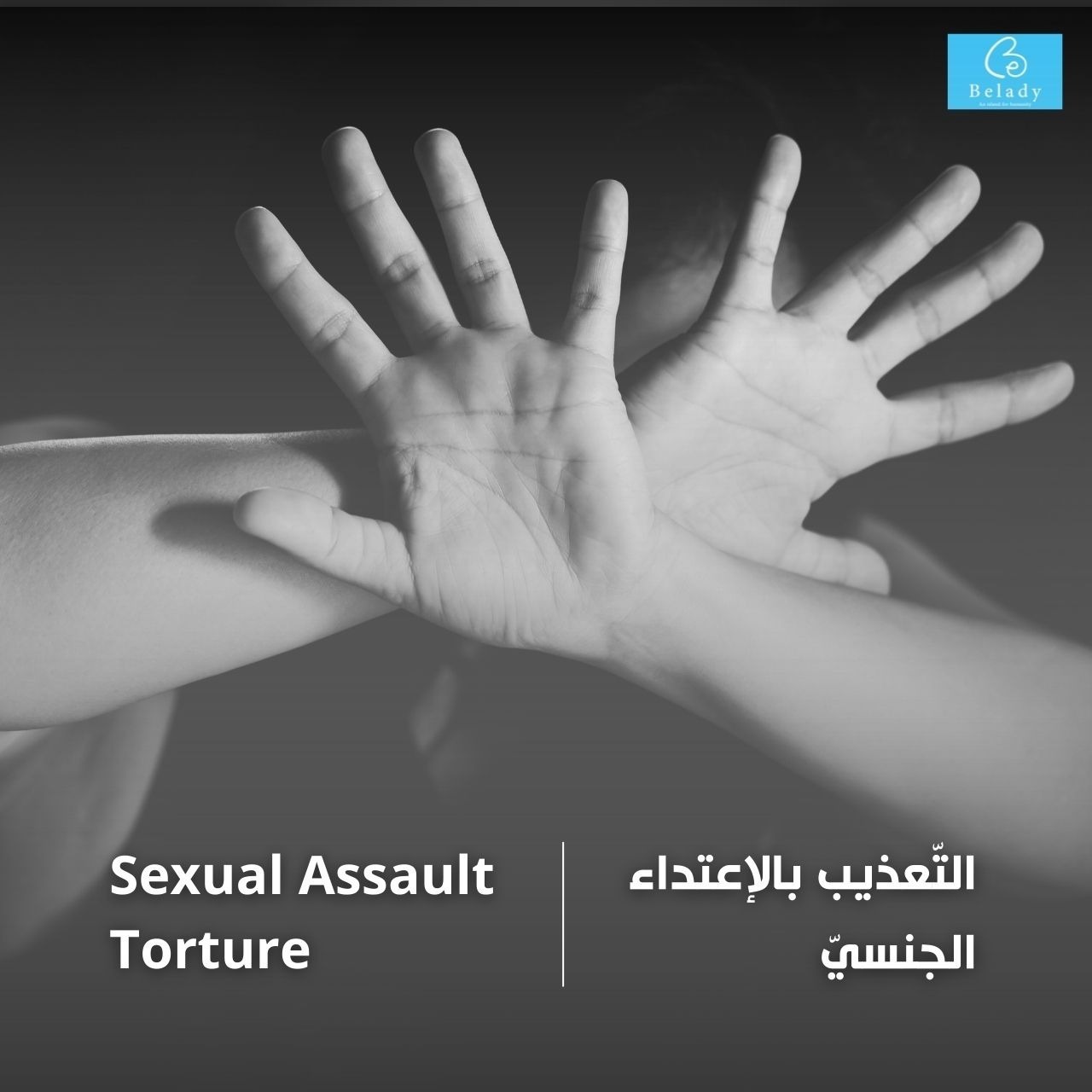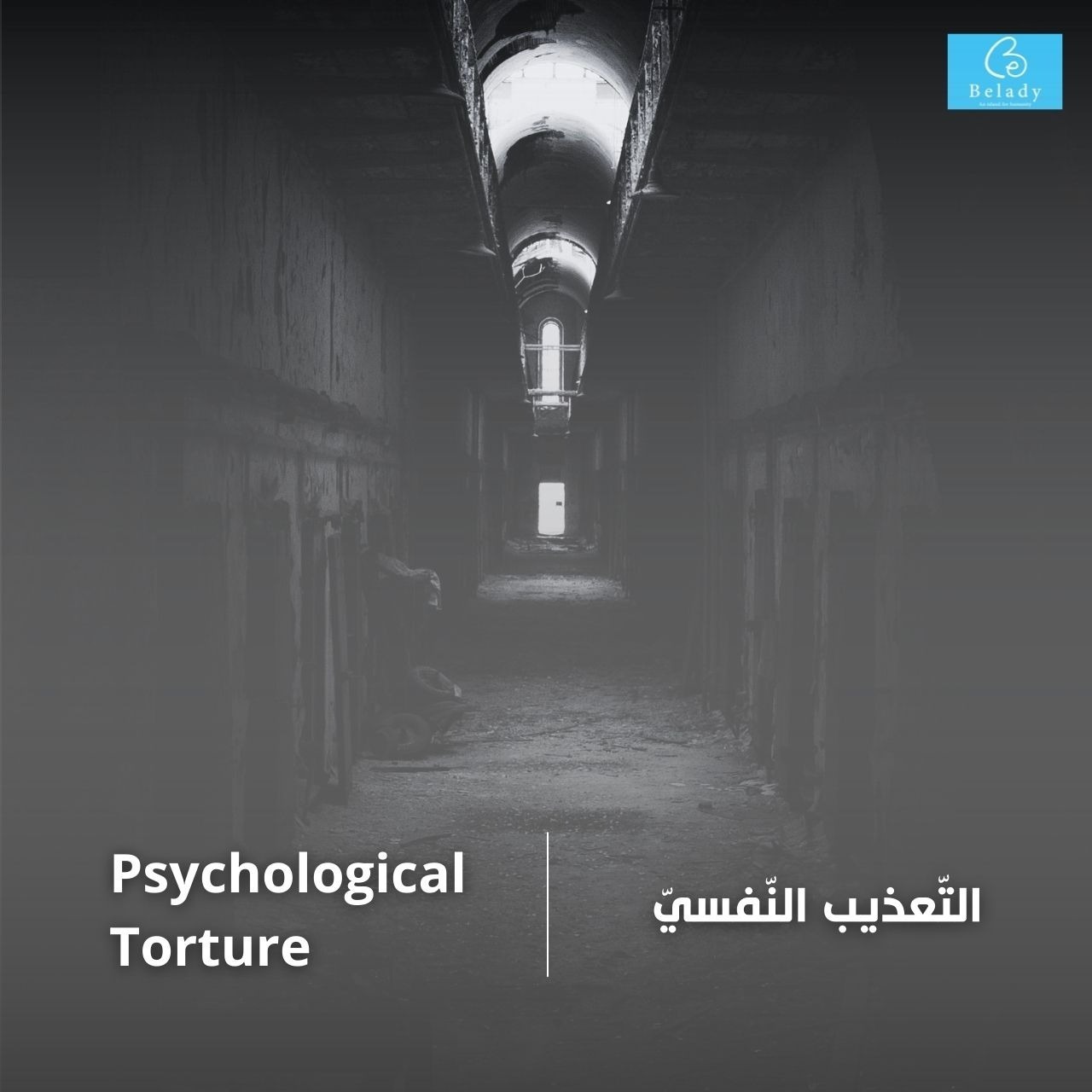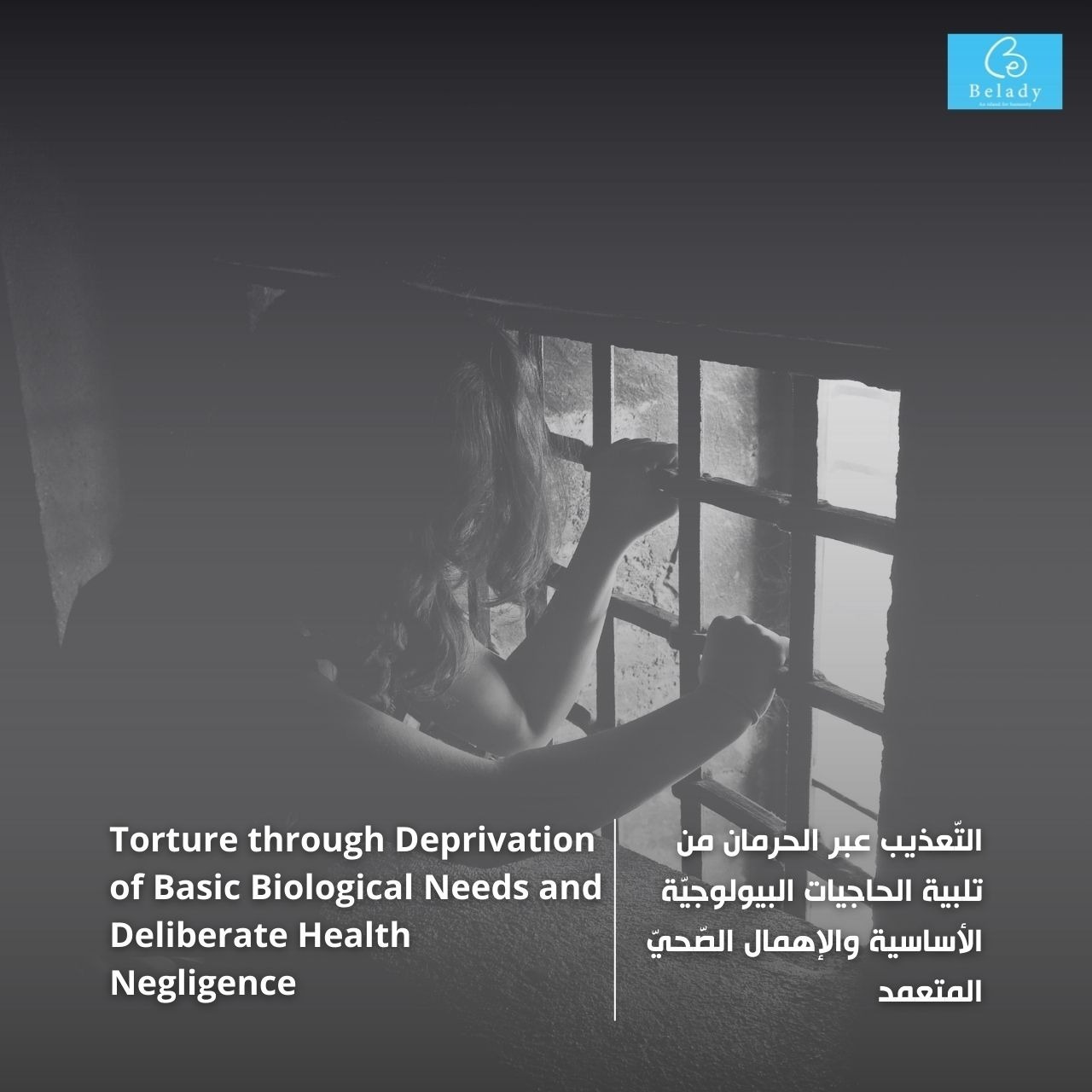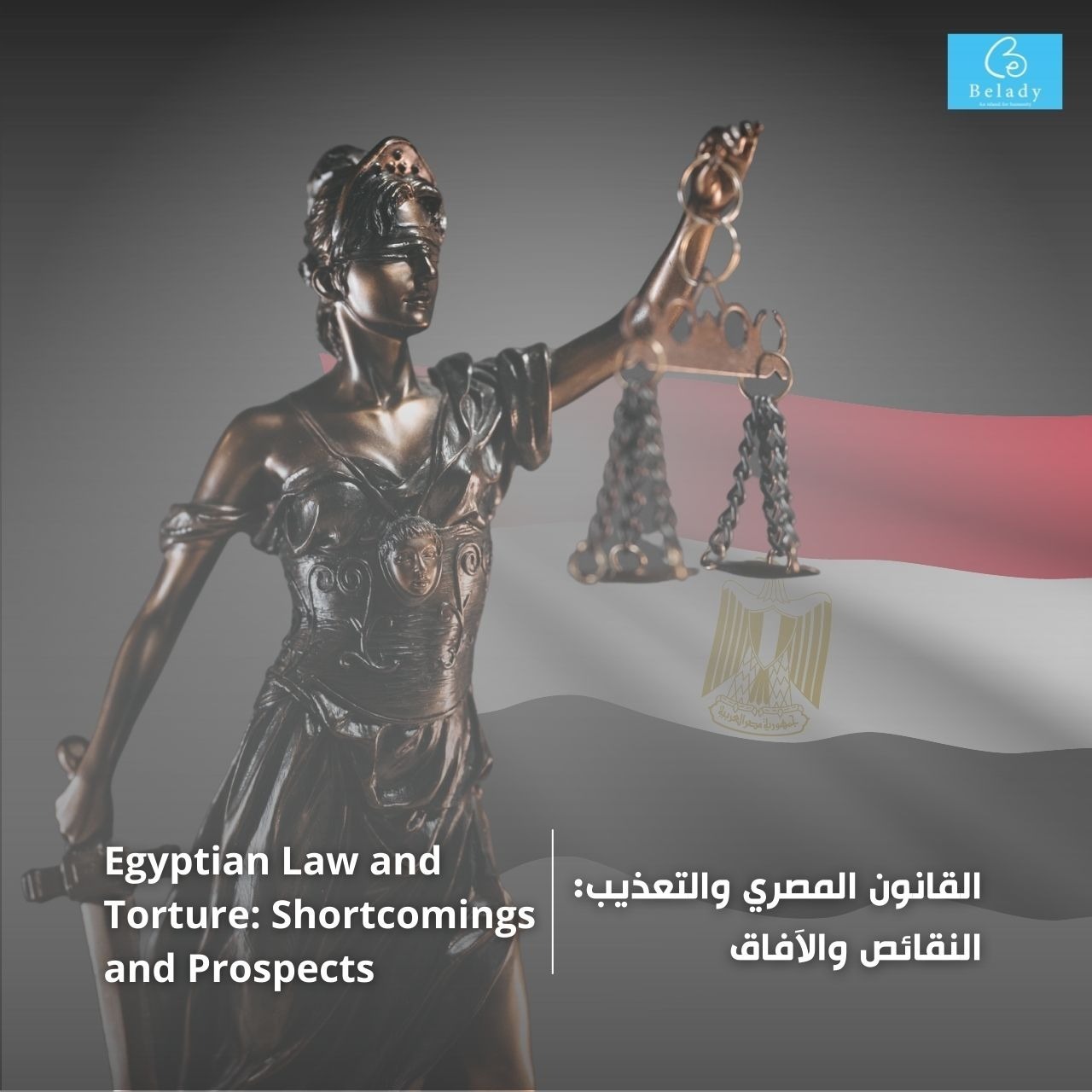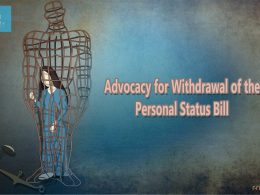
The United Nations defines torture as:
Any act by which severe pain or suffering, whether physical or mental, is intentionally inflicted on a person with the intent to obtain from that person, or from a third person, information or a confession, or to punish him for an act he has committed or is suspected of having committed.” committed by him or a third person or intimidating or coercing him or any third person or when he inflicts such pain or suffering for any reason based on discrimination of any kind, or at the instigation, approval or acquiescence of a public official or any other person acting in an official capacity. It does not include pain or suffering arising solely from, inherent in or incidental to lawful sanctions.
Belady has observed torture incidents of 264 female political prisoners, of whom 29 (10.9%) are girls between the ages of 14 and 17.
Belady observed that 207/264 (78.4%) of female political prisoners were subjected to physical torture by officers or guards, as follows:
The Egyptian regime tortured 160/207 (77.3%) female prisoners by severe beating, slapping, dragging, hair pulling and biting until causing severe injuries ranging from bleeding, paralysis, bruises, contusions, cuts, fractures, fainting, wounds on the head, and severe injuries on the eye and jaw level. Among these, Belady observed pregnant women who were severely beaten in the abdomen and lower back, causing them severe colic or bleeding and water leakage around the foetus.
Belady observed the authorities’ torture of 54/207 (26%) political prisoners by using various tools such as electric shocks, burning with cigarettes, beating with the heel of a rifle, batons, sticks, shoes, chairs, whips and stick, etc.
Belady observed the Egyptian authorities’ use of various forms of torture against 26/207 (12.6%) political prisoners, such as being forced to stand on one leg, forced to sleep on the floor, spraying with water, being tied to chairs, forcing to walk without shoes, blindfolding, opening the water pipe. Moreover, Belady observed torture through detention in inhumane conditions against 207/28 (13.5%), such as detention in narrow, cold cells, filled with water in winter, infested with insects and cigarette smoke, without lighting and ventilation, and without toilets.
Belady observed incidents of sexual assault and torture against 55/264 (20.8%) political prisoners, as follows:
- 48/55 (87.3%) female prisoners were subjected to verbal harassment (speaking obscene and abusive words, etc.) associated with physical harassment (touching intimate parts).
- 7/55 (12.7%) female prisoners were subjected to being stripped by being barred or stripped naked, or by stripping male prisoners in front of them.
- 14/55 (25.5%) female prisoners were subjected to coercive medical tests such as anal and virginity tests, genital inspection, and compulsory pregnancy test. Belady also observed a case of a female prisoner being raped by an officer in the prisoner transport vehicle.
Belady observed cases of torture 89/264 (33.7%) of a political prisoner through severe and repeated psychological pressure, as follows:
- Constant threat and intimidation by officers, guards, and wardens of beating, health care deprivation, electrocution, rape, or arrest and torture a family member against 38/89 (42.7%) female prisoners.
- Directing insulting expressions to human dignity, cursing, cussing, and slandering in the most horrific terms against 55/89 (61.8%) female prisoners.
- Forced to see or hear the torture of a person(s) sometimes from family members, forced to wipe the entire floor as a form of humiliation, and put food in front of the bathroom door against 27/89 (30.3%) prisoners.
- Furthermore, Belady observed a female prisoner being forced to stay in a brightly lit room for 24 hours.
Belady observed cases of torture of 53/264 (20.1%) of political prisoners through depriving them of meeting their basic biological needs, such as accessing water circuits, and through deliberate health negligence, such as depriving them of medicines, health supplies or transportation to the hospital. Belady observed the burning of the medicines of a political prisoner in front of her, despite her dire need for them.
- Article 55 of the 2014 Egyptian Constitution stipulates that:
- All those who are apprehended, detained or have their freedom restricted shall be treated in a way that preserves their dignity. They may not be tortured, terrorized, or coerced. They may not be physically or mentally harmed, or arrested and confined except in designated locations that are appropriate according to humanitarian and health standards. The state shall provide means of access for those with disabilities. Any violation of the above is a crime and the perpetrator shall be punished under the law. The accused possesses the right to remain silent. Any statement that is proven to have been given by the detainee under pressure of any of that which is stated above, or the threat of such, shall be considered null and void.
- Article 126 of the Egyptian Penal Code stipulates that:
- Any public official/civil servant or public employee who orders the torturing of a suspect or does the torturing personally, in order to force him/ her to confess, shall be punished with hard labor, or imprisonment for a period of three to ten years. If the tortured victim dies, the penalty as prescribed for deliberate murder shall be inflicted.
- We notice three basic shortcomings:
- The law did not define torture, whether physical or mental, or stipulate, for example, some physical acts that, if happened, are considered a part of the stipulated crime’s physical element. It did not specify the intended public official. It has stipulated that the crime occurs for a specific purpose, which is to force the defendant to confess. Specifically, the crime is there. It is described according to the Penal Code as “torture of a defendant to make him confess” instead of an independent crime as cited in the Constitution.
- The second paragraph of Article 282 of the same law stipulates that: “…… In all cases, a penalty of temporary hard labor shall be imposed against whoever arrests a person without any legitimate claim, and threatens to kill them, or torments them with physical tortures”. Here we find that the punishment applies only to physical torture with no regard to psychological torture. Physical torture is required to be accompanied by unjust arrests instead of considering it as an independent crime.
- Fortunately, the law states that those two crimes can exceed the limitation period. In other words, the right to criminal liability is not subject to any statute of limitations, according to the second paragraph of Article 15 of the Code of Criminal Procedure.
- Lastly, the law implicitly criminalizes any act of violence. Article 129 of the Penal Code stipulates that:
- Any public official or employee civil servant or any person charged with performing a public service who employs cruelty with people, depending on their position, such that they commit a breach of their honor, or incurs bodily pains to them, shall be punished with detention for a period not exceeding one year or paying a fine not exceeding two hundred pounds.
- We find that this article criminalizes the act of ‘cruelty’ used by a public official because of their office. For the crime to occur, the use of cruelty must result in dishonoring the victim or physically hurting them. No physical act is specified to represent this crime. The occurrence or absence of the crime depends on psychological matters such as dishonor or pain. The law does not include it in Article 15 of procedures. This crime can be abated with the elapse of time. ]
Belady calls upon the Egyptian authorities to implement the laws that protect citizens from torture; to review the legislative framework in order to improve it; to acknowledge and recognize the use of enforced disappearance and all forms of torture and to seriously and urgently seek to eliminate these crimes; to rehabilitate the survivors and to compensate them and their families; and to hold accountable those involved in torturing citizens.






